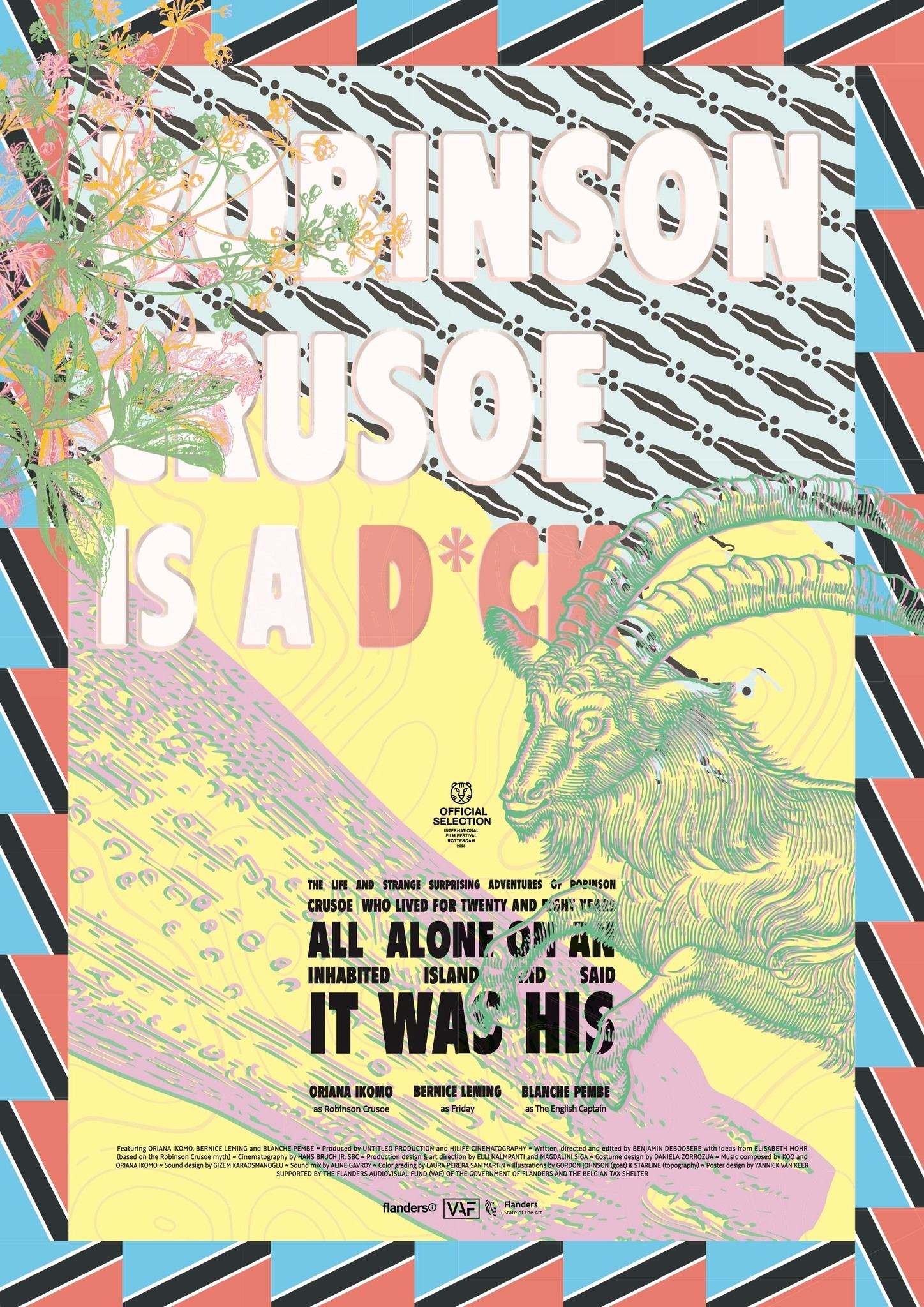
This film is not just an adaptation of Daniel Defoe’s 1719 novel Robinson Crusoe. Rather, it addresses the larger cultural myth that has grown from the premise of the book: a white man ‘civilising’ indigenous inhabitants of an island, and claiming the territory as his own property. In a time today when the call to decolonise the artworld and its associated institutions has never been more urgent, Deboosere's cinematic intervention resonates with a large body of work seeking to destabilise and replace the ideology of imperialism. The result is a singular, subversive film, satirical and surprisingly charming at the same time, which makes sure to pay just as much attention to animals and the natural world as to the follies of human-constructed ‘anthropocene’ history.

